- Home
- Bernice Rubens
I, Dreyfus Page 9
I, Dreyfus Read online
Page 9
‘It’s always been the same with Eccles,’ he told me, ‘ever since I’ve been here. And that’s about twenty years. He’s always had a following. There’s nothing sinister about it.’ I hoped that he was right. Doubtless I had been influenced by that year-ago wink, its flickering forever in my eye, so that any Eccles activity was laced with suspicion.
It was his practice every Lent half-term to take a group of boys skiing to the same place in Austria. Again he did not want for my permission. I recognised the names of the disciples who enrolled for the expedition, about a dozen of them, but this year one of the applications came from a boy whom I had not regarded as one of the cabal. His name was George Tilbury.
Why do I need to spell it out? For George’s name is as famous as mine is infamous. His name too, is known through-out the world, but unlike mine, it has not been tagged with labels. It has remained with its true baptismal title and I write it with overwhelming pity and rage.
George was the son of a cabinet minister, Sir Henry Tilbury. I’d met him once, at our speech day, an impressive man with an inherited title. His politics were centre-right and he was a devoted monarchist, at the same time favouring the European Community. In my estimation, he personified those virtues of a true Englishman, a patriot much given to tolerance. And George was exactly like him. His best friend was a Jewish boy, David Solomon, son of an orthopaedic surgeon.
I was fond of George. He was not particularly bright academically, but he was a willing boy and he possessed a quality sadly lacking amongst the pupils in general – a sense of humour and occasional mischief. I did not regard George as an Eccles follower, neither apparently did Eccles for he came to see me regarding George’s request. He suggested that if he accepted Tilbury, they would be a party of thirteen, and though he himself was not superstitious, he suspected that the other boys might be wary of the number. I quickly dismissed that possibility. I felt that the superstition excuse was a cover for his own personal reluctance, so I insisted he be included in the party. I sincerely hoped I was doing young George a favour.
‘You might well be right, Sir Alfred,’ Eccles said.
I don’t know why, but when my title was sounded by the likes of Eccles, I found it faintly insulting.
So off they went at half-term and I looked forward to George’s return. Lucy and I took the children and went down to our village for the week’s break. Matthew couldn’t come. His children’s half-term didn’t coincide with ours. So I invited our poet-in-residence to spend a few days with us. Richard had not yet managed to find a steady girlfriend and he jumped at the prospect of fields and pastures new. I didn’t hold out much hope for a poet in our little village. Its inhabitants were suspicious of artists of any kind, but I did not want to discourage him.
It was less than a year since my parents had died. Although I was beginning to accommodate my orphanhood, the pain of that loss persisted. Their graves were decked with flowers even in our absence, testimony to the respect that they had inspired amongst the small community. And we were always made welcome, as if they needed the link as much as we needed it ourselves. Richard too, was included in their invitations to teas and suppers and was even invited to give a poetry reading in the village hall. I was surprised that he accepted, and I was anxious about how he would be received. I expected a sparse and suspicious audience, but the village hall was full and expectant. Richard dressed for the occasion in spotless jeans, and a pink shirt with a flowered cravat. When he came on to the stage there was immediate applause even before he had opened his mouth and for the next hour he held them spellbound and silent with his magic rhymes. When he had finished there were sighs of disappointment and cries for more. And when their hands grew sore, they stamped their feet in applause. I think every girl and woman in that audience, and possibly a few men, must have fallen in love with him, and Lucy and I left the hall leaving him to his acclaim. I was sure that in the future he would not have to look further afield than our village to find his longed-for steady.
During that half-term, I thought often of George, and hoped that he was enjoying himself. Sometimes I dreaded returning to the school to find I had made a terrible mistake. But my first sight of George proved that all was well. I invited him to my table one lunch-time, together with his friend David Solomon. I asked him about his trip and he reported that it was the best holiday he’d ever had, and that he was definitely going to go again next year.
During the rest of that term, I noticed that he had joined the tea-taking group in Eccles’s rooms. I saw him striding the fields in their after-school walks. It seemed to me that by the end of that school year, George Tilbury had become Eccles-hooked. I was none too pleased with this attachment, but I was more pained to notice that his friendship with David Solomon seemed to have come to an end. I don’t think they had quarrelled, but the closeness was gone, and for some reason it disturbed me profoundly. George Tilbury had clearly undergone a radical change and in so doing he had sadly lost his sense of humour. I wanted very much to talk to him, but I had no valid reason to call him to my study. Boys dropped by all the time but I did not send for them. Unless there was a very good reason, it was not in my remit to solicit. And with George I had no reason. Until, that is, the summer term, when his housemaster’s report indicated a serious and sudden decline in his achievement. I called George to my study and asked if he could explain his falling standards.
‘I do my best, sir,’ he said.
There was insolence in his tone, so unlike the George I had first known.
‘You are capable of better,’ I said.
‘That’s my best, sir,’ he said in a ‘take it or leave it’ manner.
Then I got angry. ‘You’ll be sitting your GCSEs next year, and at this rate you won’t get a university place. Your father will be very disappointed.’
I hated myself for using that ploy. That I had to recruit displayed my own weakness. George said nothing. He simply looked at me with disdain. I stared at him for a moment. Then, ‘Is there something troubling you George?’ I asked.
‘Nothing, sir. Nothing at all,’ he said.
His tone had changed. He seemed a little boy again and I knew that, however he denied it, something was disturbing him.
‘You can always come to me you know,’ I said.
‘Thank you, sir.’ He backed away and I knew he wanted very much to escape. I had the impression that once outside my door, he would start to cry.
‘Any time,’ I added. ‘Keep that in mind. You can go now,’ I said, much to his relief.
He murmured, ‘Thank you,’ and left the room.
Later on I had a word with his housemaster. He too had noticed a sullenness about the boy, alternating with a certain arrogance. He promised to keep an eye on him.
I couldn’t get the George problem out of my mind and in time, he joined the Eccles wink in my haunting nights.
Towards the start of that summer term, there was a timid knock on my door, so timid I knew it had to be a pupil. I did not call ‘Come in’ as I would have done to a teacher. I went to the door and opened it in the hope that my form of welcome would give the visitor a little more confidence than his limp knock betrayed. It was James Turncastle, and I wondered what he wanted of me. James was a brilliant pupil, one of the best in the school. I didn’t know him well except that he was an Eccles disciple. His father was a diplomat somewhere in the Near East but I had never met his parents. Though he was part of the Eccles group, James had always struck me as being something of a loner. He was a handsome boy, who looked somewhat older than his years. He was just about to take his GCSEs. That summer though, by all accounts, he was academically ripe for university entrance. I asked him to sit down. He fidgeted in his seat.
‘Take your time,’ I said sensing that he had a difficult request to make. ‘What can I do for you?’
‘I want to take a year off. After my GCSEs,’ he blurted out. He said it quickly as if he wanted to get it over and done with.
I was surprised a
t his request. ‘Why?’ I asked reasonably.
‘I want a break before I do my A levels.’
‘A break is very unusual at this stage,’ I said. ‘It’s quite common to take a year off after A levels and before university. Now would not be a good time to interrupt your schooling.’
He didn’t answer me and I felt I had to probe further. ‘What would you do with this year off?’ I asked.
‘I’ve been invited to stay with friends in Vienna. I met them when we were skiing with Mr Eccles.’
‘Have you talked to your parents about it?’ I asked.
‘No. I don’t have to,’ he said. ‘They don’t care anyway.’
I thought that last remark a key of sorts and I decided to investigate it. James had started at the school before my appointment. There must be records of his background somewhere. I looked at him.
‘Please, sir,’ he said.
‘I’ll have to think about it,’ I parried. ‘Come and see me at the end of the week.’
He rose. ‘Thank you, sir,’ he said. And again, ‘Thank you.’
I was relieved at last to find an excuse to call Eccles to my study. Apart from teaching the boy history, he was also his housemaster. He came to see me after classes and was his usual sycophantic self. I poured him a sherry as I informed him of Turncastle’s request.
‘What do you know about the boy?’ I asked. ‘His background, I mean.’
‘Not a very happy one, I’m afraid,’ Eccles said. ‘He’s an only child, and of parents who never wanted children. They are a career couple, very rich and very selfish. He rarely sees them. He’s fobbed off to an aunt in Devon for his holidays, and since he has been at the school, not one of his family has put in an appearance.’
‘What’s this about Vienna?’ I asked.
‘Those friends of his are genuine. And I can vouch for them.
I know their parents. They would make him welcome.’ ‘What about money for the trip, his keep and so on?’ Eccles smiled. ‘Turncastle has an inexhaustible allowance.
His parents’ conscience money, no doubt.’
‘What d’you think?’ I asked him. ‘Should I give him leave?’ ‘It’s your decision, Sir Alfred,’ he said.
‘What do you think?’
‘Well, he could at least come back fluent in German. Not a bad bonus, I’d say.’
I was inclined to let the boy have his way because I felt that to refuse him would be far more damaging than letting him go. But first I had to write to his parents and his aunt for their formal permission. When at the end of the week Turncastle knocked on my door, I told him I had to await a response from his parents. He laughed.
‘Ever since I’ve been here, and that’s almost four years, I’ve never had one letter from them. Not even a card on my birthdays. I hope you have better luck then I, sir.’
But I didn’t. By the end of that term, I’d received no response from either his parents or his Devonian aunt. I waited for his GCSEs to be over, then I called James to my study. His knock was still timid, and he entered nervously. I told him to sit down and I smiled at him. He sensed that good news was at hand, but he was still tense.
‘I’ve decided to let you go,’ I said. ‘Just for the year. I shall expect you back in school, fluent in German, a year from September.’
James relaxed with the fatigue of gratitude.
‘On one condition,’ I said. ‘That you write to me regularly. Just a postcard will do. But they must be regular. And I shall need your address and phone number.’
‘Of course, sir,’ he said.
‘And I wish you luck.’
He rose from his seat. And then he did an extraordinary thing. He crossed my desk and spontaneously embraced me. I did not restrain him. I was deeply moved by his need for some affection. I put my arms around him. He felt like a son to me, and I’ve no doubt, he imagined that I was his father.
He moved away, turning his head. I was sure he was crying.
‘Good luck,’ I said to him again. ‘And enjoy every minute.’
He left quickly and I stayed sitting at my desk for a while, wishing him well, as I would have wished my own son.
For the end of the school year Lucy and I gave another party. Again the talk was of vacations. This time Eccles was off to visit friends in America, Brown was making a return trip to San Francisco, and Dr Reynolds was holing up in his cottage in the Cotswolds. It did not surprise me that our young poet-in-residence was spending the summer in our little village in Kent. As for Lucy and I and the children, and Matthew and Susan and theirs, we had decided to take a cruise in the Norwegian fjords.
As I recall it now, that was the last summer we spent en famille. Indeed in my own life, it was my last summer altogether. I despair of seeing another. Or indeed of counting on any season at all. For my cell is deaf to the falling of leaves or the burst of buds, or the beating of the sun, or the muffled hush of snowfall. I am here in a seasonless limbo, where time is a faceless clock that ticks in the dark.
Chapter 15
‘I asked Rebecca about Eccles, Sam,’ Matthew said. ‘She told me that his evidence was impeccable.’
They were sitting in Lucy’s drawing-room. Lucy was in the kitchen preparing tea and the children had gone to the house of friends.
‘I remember it myself,’ Matthew said. ‘He spoke of Alfred as a great mentor with a grand flair for administration. There was not a hostile word in his whole testimony. Fenby, the music master, was the same. I can’t recall that any teacher spoke against him. Except one or two maybe. I can hardly bear to think of those days.’
‘Alfred is writing very well,’ Sam said in an attempt to change the subject. ‘Despite the painfulness of the matter, he seems to be coping well. I think he sees the writing as an act of therapy.’
‘Rebecca is following all the leads,’ Matthew went on, as if he hadn’t heard him. ‘She’s even been down to Kent.’
‘She sounds very thorough,’ Sam said, but he refrained from probing further. He had the impression that Matthew was giving nothing away, or perhaps that Rebecca was keeping her findings close to her chest. Or perhaps both, since Matthew seemed obsessed with the search and possibly, Sam thought, with Rebecca herself.
Lucy brought in the tea, and while they ate and drank, the subject of Alfred was not touched upon. Lucy gave a progress report on the children, who were doing well with their tutor. She herself had found a part-time typing job which she could do at home.
After tea, Matthew rose to go. He seemed in a bit of a hurry. Sam was glad he was leaving for he was anxious for news about Susan which he could only prise from Lucy in Matthew’s absence. He helped her clear the tea things, and when they were in the kitchen he asked, ‘How’s Susan? Is there any hope of a reconciliation?’
‘None,’ Lucy said. ‘Never. Matthew is determined. And I think that he is right. In any case,’ she said after a while, ‘I think his interest lies elsewhere.’
‘Rebecca?’ Sam asked.
‘Rebecca,’ Lucy said.
‘Have you ever met her?’
‘Yes. Once.’
‘I’m happy for him,’ Sam said.
‘So am I. He’s been through a very rough time.’
‘I’ve had a substantial offer from an American publisher for Alfred’s book,’ Sam said. ‘Just on the basis of a few chapters. I’m wondering whether I should tell Alfred. What do you think?’
‘I think not,’ Lucy said. ‘Firstly, he’s indifferent to money. You know that. But secondly, and more importantly, I think it will make him nervous. He will feel that too much is expected of him. Let him get on with it in his own way. The only pressure should come from himself.’
Lucy was a very wise woman, Sam thought. ‘I could give you a job,’ he said suddenly. ‘In my agency. You could work from home, and the link need never be known.’
Lucy was excited. ‘What would I have to do?’ she asked. ‘Read manuscripts mainly,’ he said. ‘Fiction and non-fiction, and write reports on them.
As if you were an ordinary reader.’ ‘I’d love to do that,’ she said.
‘I’ll pay you in cash. Just another way to conceal the link.’
‘When do I start?’
‘Tomorrow. I’ll bring a package over.’ He could not trust a courier. Nor the postal service. Lucy’s address must not be known.
‘But you’ll tell Alfred, won’t you Sam?’ Lucy said. ‘It would make him very happy.’
‘Of course I’ll tell him. Next week when I’m due to collect his next chapter. And I won’t mention the American money.’
When he returned to his office, Sam gathered together three manuscripts that had been awaiting perusal for too long a time. He was happy with his decision. It would boost Lucy’s morale and it would be a great relief to himself. But above all, it would please Alfred, and Alfred was Sam’s main concern.
Chapter 16
When I returned to school after the summer break, the sight of a pile of postcards from James gave me much pleasure. I examined the postmarks and placed them in the order of their writing. They started off with gratitude and enthusiasm and continued right through in that vein. His German was improving day by day, he wrote. It had to, since none of his friends spoke English. He had spent the summer in the mountains, and in his penultimate postcard he told me he had enrolled in a school of martial arts. His last postcard came as a surprise. He was suddenly homesick, he said. I was pulled up sharply by that word for I wondered what or where poor James envisaged as ‘home’. It could only have been the school. He intended to return at the start of the Lent term and he hoped to start studying for his A levels, with German as an added subject.
I was delighted, happy to be in a position where I would not miss him. I wrote to him straight away, a long letter, congratulating him on his GCSE results. They were, as all of us had expected, brilliant. He had taken twelve subjects and had achieved an A* in eleven of them. B in one subject, chemistry, was his lowest mark. In my letter, I gave him news of the school and how his friends had fared in their exams. I told him about our summer holiday cruise in the fjords, and about my children and how they were doing in their school. I realised that it was a very intimate letter, one that a father might write to his son. I told him that I was glad that he was making an earlier return and that I looked forward to welcoming him back to the school.

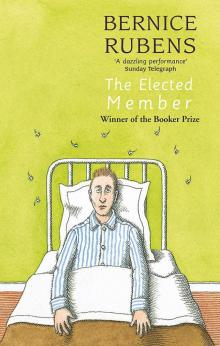 The Elected Member
The Elected Member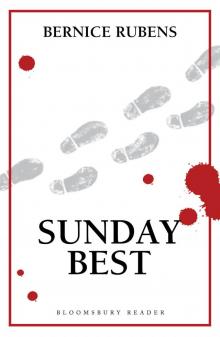 Sunday Best
Sunday Best Nine Lives
Nine Lives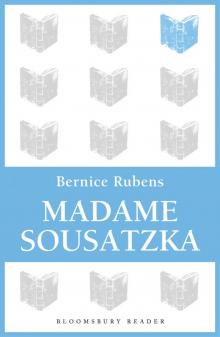 Madame Sousatzka
Madame Sousatzka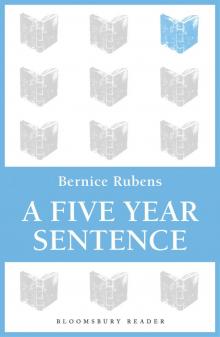 A Five Year Sentence
A Five Year Sentence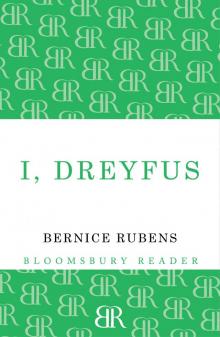 I, Dreyfus
I, Dreyfus